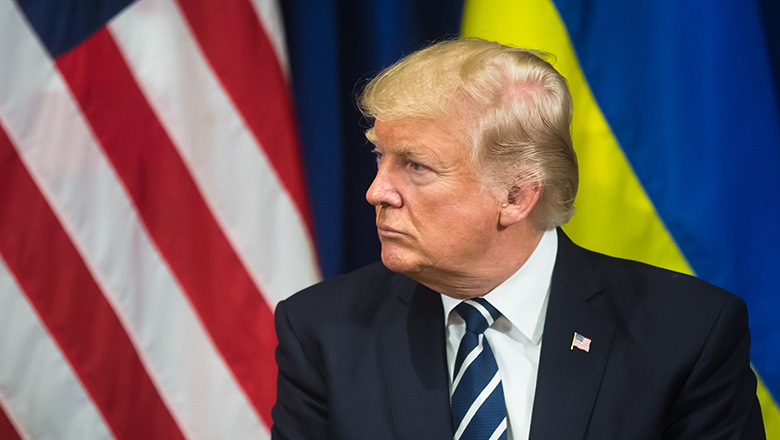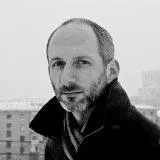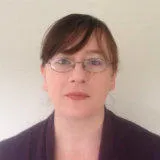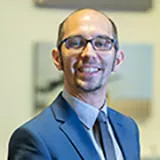That was a train wreck by design. The quiet conversation since Munich has been about setting Ukraine up for a fall.
Professor Sam Greene, of King’s Russia Institute.
03 March 2025
Understanding the fallout from the Trump-Zelenskyy Oval Office meeting
Experts from King’s shared their insights on the extraordinary Oval Office exchange between US President Donald Trump, Vice-President JD Vance and the Ukrainian President Volodymyr Zelenskyy.

Following the heated discussion on 28 February, which played out live in front of the world's media, President Zelenskyy left the White House, meaning an anticipated deal around Ukraine’s mineral wealth was not signed. During the meeting, the US leader and his deputy accused the Ukrainian president of not being sufficiently thankful for American support so far, and warned him: "You're either going to make a deal or we're out, and if we're out, you'll fight it out. I don't think it's going to be pretty."
As the world sought to understand what they had just witnessed, King’s experts shared their insights and explored the potential implications for Ukraine, Europe and the rest of the world.
Professor Sam Greene, Professor of Russian Politics at King’s Russia Institute, was quoted in The Guardian US about what had happened in the White House.
He also appeared on ABC Australia discussing whether European backing for Ukraine will continue, was quoted in The Telegraph about Russia's aims in the war and he posted his thoughts on both X and BlueSky.
Dr Ruth Deyermond, Senior Lecturer in Post-Soviet Security at King's Russia Institute, took to BlueSky to share her thoughts on what she called "Oval Office bullying” and failed attempts to push Zelenskyy into a peace deal "where only Ukraine gave and Russia took”. She said the behaviour of Trump's administration suggests it may have made the same assumptions about Ukraine as Russia did when it launched its invasion.
Dr Anna Matveeva, a Senior Visiting Research Fellow in King’s Russia Institute, told Sky News that “we have never seen anything like this in international diplomacy, let alone in the Oval Office". She warned of the consequences for Zelenskyy, saying it could prove a "mistake" as history showed that “President Trump is not very kind to people who attack him personally”.
Shashank Joshi, a visiting fellow in the Department of War Studies and Defence Editor at The Economist, shared his thoughts on the events in the White House and the Trump administration in a series of posts on X.
Professor Sir Lawrence Freedman, Emeritus Professor of War Studies, appeared on Sky News, LBC, Times Radio and on the BBC News Channel discussing how events unfolded. He said that in the circumstances, he did not think Zelenskyy had much choice but to try to correct statements he considered untrue.
I think the view in Ukraine is that it's important that the Americans know that this is a country that is prepared to fight for its dignity as well as its sovereignty.
Professor Sir Lawrence Freedman, Emeritus Professor of War Studies
When asked about Sunday's meeting of European leaders in London, he said there are likely to be more statements of support for Ukraine, but the most urgent question is whether Europe "can not only just find more money but improve its productive capacities, really step up now to show that Ukraine can be supported". He pointed out that, even before Friday's meeting with Zelenskyy, Trump had given very limited promises to Ukraine that he would keep support going while the discussions were underway.
He was also quoted in The Guardian about whether peace was achievable in the current climate, saying “My view is that what Russia wants, the US can’t deliver and the Ukrainians won’t accept."
Dr Bence Nemeth, Senior Lecturer in the Department of Defence Studies, was quoted in The Sun and wrote an article for the King's website about how European nations, without the United States as a steadfast ally, are now rethinking their security strategies. He said this creates a turbulent security environment, but it offers opportunities as well as challenges.
When longtime alliances shift, we cannot assume conflict is inevitable. Instead, such disruptions can create space for dialogue and new partnerships. It is a complex challenge but also an opportunity to reshape the rules of engagement for the 21st century in ways that might ultimately serve all parties better.
Dr Bence Nemeth, Senior Lecturer in the Department of Defence Studies
Prior to the Oval Office meeting, King's experts discussed recent visits to the White House by French President Emmanuel Macron and UK Prime Minister Keir Starmer, and the potential consequences of how Trump is approaching negotiations.
Professor Michael Witt, Professor of International Business and Strategy at King's Business School, told Newsweek that President Trump’s actions had prompted Macron to reiterate his previous offer to extend the French umbrella to others, and that it was time for Europe to take this more seriously.
"With Donald Trump signaling a retreat from NATO commitments and prioritizing American interests over alliances, Europe can no longer rely on U.S. protection. France's offer to extend its nuclear umbrella to Germany and the rest of Europe presents the most viable solution.
Professor Michael Witt, Professor of International Business and Strategy at King's Business School,
Professor Freedman told the Sydney Morning Herald it could mean Europeans having to take full responsibility for their own defence – and that of Ukraine – while being excluded from the vital negotiations that will determine the extent of the challenge they face.
None of this should have come as a surprise. Trump has often said that he wants to repair relations with Russia while complaining that Europe has been freeloading on the US and should no longer expect to be bailed out at times of crisis.
Professor Sir Lawrence Freedman, Emeritus Professor of War Studies
Dr Mark Hilborne, Senior Lecturer in the School of Security Studies, was quoted on iNews about Europe needing to accelerate its military preparations. He said the increase in Ukrainian defence output, combined with European assistance, should be sufficient for it to maintain resistance to Russia.
There is quite a lot of analysis that suggests Russia has little left with which to continue this conflict, beyond a year or thereabouts, as both its finances and military stockpiles are depleted. That is also true of Ukraine, but effectively they only have to outlast Russia, and the latter would then have to reconsider its stance. The rush for ‘a deal’ overlooks this.
Dr Mark Hilborne, Senior Lecturer in the School of Security Studies.








